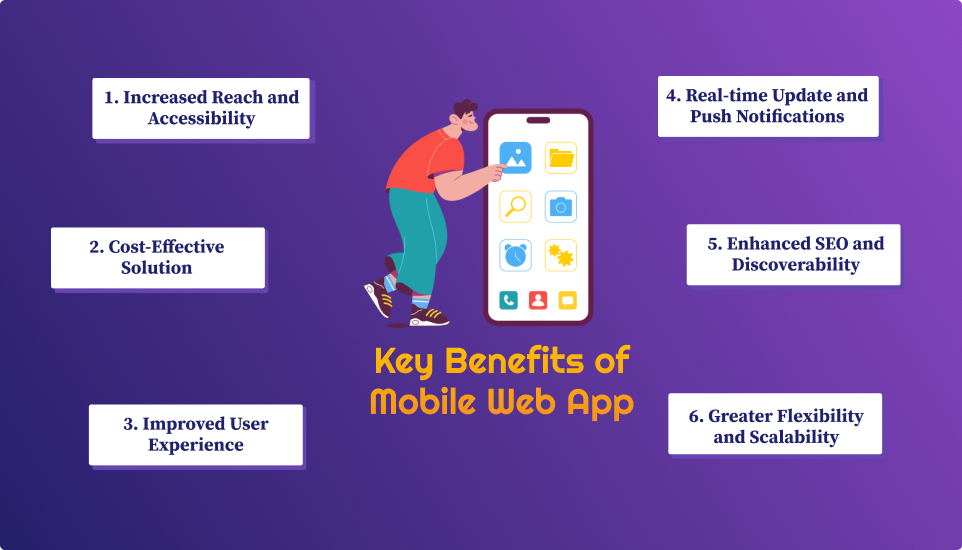
The mobile application market has witnessed exponential growth in recent years due to the increasing popularity of smartphones and tablets. This has led to the rise of mobile application apps, which serve as a portal for users to access a wide range of mobile applications. In this article, we will explore the various aspects of mobile application apps, including their importance in the mobile app business landscape and the difference between mobile application apps and mobile web apps.
In the ever-evolving world of technology,mobile application apps have become an integral part of our lives. With the rising popularity of smartphones, these apps are designed to cater to various needs and provide convenient solutions at our fingertips. Whether it's for entertainment, communication, e-commerce apps, or any other purpose, mobile apps have revolutionized the way we interact with our devices.
Importance of Mobile Application Apps in the Mobile App Business
Mobile application apps play a pivotal role in the success of mobile app businesses. They provide a convenient and user-friendly way for consumers to browse and search for mobile applications, making it easier for businesses to showcase their offerings. Moreover, mobile application apps often include various features like app reviews, ratings, and recommendations, helping users make informed decisions before downloading an app.
Mobile application development has become an integral part of the booming mobile app business. In this technology-driven era, the significance of mobile apps cannot be undermined, as they continue to revolutionize the way individuals interact with their smartphones. With the ever-increasing usage and dependence on mobile devices, it has become imperative for businesses to invest in mobile application development to remain competitive.
Mobile application apps have become an indispensable element of the mobile app business. With the ever-increasing popularity and reliance on smartphones, businesses must invest in mobile app development to stay relevant in their respective industries. Whether it's creating mobile web apps or developing native applications, The opportunities presented by mobile app development are immense. As the mobile app business continues to thrive, businesses need to recognize the importance of mobile apps and leverage them to enhance customer engagement, improve user experiences, and ultimately drive business growth.
The Rise of Mobile Application Apps
The rise of mobile application apps has revolutionized the way we interact with technology and conduct business. Whether it's through mobile apps or mobile web apps, businesses are embracing the potential of this technology to attract and retain customers, increase revenue, and stay ahead of the competition. As mobile technology continues to evolve, it is becoming increasingly essential for businesses to invest in mobile app development and leverage the power of mobile apps for sustainable growth in the digital age.
In recent years, the prevalence of mobile devices has significantly influenced the rise of mobile application development companies. With the ever-increasing number of smartphone and tablet users, businesses are now recognizing the importance of integrating their operations with these mobile platforms. This has led to the development and popularity of mobile application apps, also known as mobile apps, which have become essential tools for both businesses and customers.
The advent of smartphones and tablets revolutionized the way people access information and interact with technology. With the rise of mobile devices, the demand for mobile applications also skyrocketed. This led to the emergence of mobile application apps, which act as centralized platforms to discover, download, and manage mobile applications.
Difference Between Mobile Application Apps and Mobile Web Apps
While mobile application apps are commonly used to download and install native mobile applications, mobile web apps differ in their functionalities. Mobile web apps are essentially websites optimized for mobile devices, accessible through web browsers. Unlike mobile application apps, which require installation, mobile web apps can be accessed instantly without taking up storage space on a user's device.
One key difference between mobile application apps and mobile web apps lies in the user experience. Mobile application apps are known for their high performance and superior user interface. Since they are built specifically for a particular operating system, they can make full use of the device's capabilities, providing seamless functionality and a visually appealing design. On the other hand, mobile web apps have limitations in terms of performance and user interface as they need to adapt to various platforms and browsers.
Mobile application apps and mobile web apps are two distinct options in the mobile app industry. While mobile application apps provide superior user experience and are ideal for businesses requiring advanced functionalities, mobile web apps offer cost-effectiveness and wider accessibility. The choice between the two ultimately depends on the specific requirements and goals of the mobile app business.
Key Benefits of Mobile Web App

Mobile web apps offer several key advantages for both users and businesses. For users, mobile web apps provide a curated platform, ensuring that the apps available are of high quality and free from malware. These apps also provide a seamless user experience, allowing users to easily discover and manage their downloaded apps.
- Increased Reach and Accessibility
Mobile web apps allow businesses to reach a wider audience by making their products or services accessible to users across various platforms, such as smartphones and tablets.
- Cost-Effective Solution
Compared to developing native mobile apps for different operating systems, creating a mobile web app proves to be a more cost-effective solution for businesses.
- Improved User Experience
Mobile web apps are designed to offer a seamless user experience, with responsive design and user-friendly navigation. This ensures that users can easily navigate through the app, find relevant information, and complete desired actions efficiently.
- Real-time Update and Push Notifications
Mobile web apps allow businesses to provide real-time updates to users, keeping them informed about the latest products, services, or promotions. Push notifications can be sent directly to users' devices, ensuring timely communication and engagement.
- Enhanced SEO and Discoverability
Mobile web apps are easily discoverable through search engines, making it easier for potential customers to find your business.By incorporating relevant keywords and optimizing the app for search engine optimization (SEO).
- Greater Flexibility and Scalability
Mobile web apps offer businesses greater flexibility and scalability, allowing them to adapt to changing market dynamics and customer preferences. With a web app, companies can easily update content, add new features, or expand their app's capabilities without going through the lengthy process of app store approvals.
Mobile App Business Essentials
For individuals or businesses looking to venture into the mobile app business, there are essential aspects to consider. Firstly, market research plays a crucial role in determining the demand and competition for the proposed app. Identifying the target audience, understanding competitor offerings, and conducting surveys or focus groups can help refine the app's concept.
Next, selecting the right development approach is vital. Native app development provides optimal user experience and access to device-specific features but involves developing separate applications for different platforms. Conversely, mobile web app development offers cross-platform compatibility but may lack certain native functionality and performance.
When it comes to running a successful mobile app business, there are several essential aspects that need to be considered. In today's digital landscape, mobile applications have become increasingly popular and essential for businesses to thrive. Whether you are developing a mobile application yourself or planning to venture into the mobile app market, understanding the ins and outs of this industry is crucial.
Future Trends in Mobile Applications
As technology continues to evolve, mobile applications will also see new trends and advancements. Augmented reality (AR) and virtual reality (VR) are expected to play a significant role in mobile apps, revolutionizing industries such as gaming, education, and healthcare. Machine learning and artificial intelligence (AI) will enable app personalization and predictive analytics.
- Artificial Intelligence (AI) Integration
AI integration in mobile applications is undoubtedly one of the most significant trends to watch out for. From virtual assistants like Siri and Google Assistant to personalized recommendations and predictive analytics, Artificial Intelligence is revolutionizing the way we interact with mobile apps.
- Internet of Things (IoT) Connectivity
As IoT continues to connect various devices and objects, mobile apps will play a pivotal role in controlling and managing these connected devices. From smart homes to wearable devices, mobile applications will act as the central interface for users to monitor and control their IoT devices.
- Improved User Experience
Mobile web apps are designed to offer a seamless user experience, with responsive design and user-friendly navigation. This ensures that users can easily navigate through the app, find relevant information, and complete desired actions efficiently.
- Augmented Reality (AR) and Virtual Reality (VR)
Mobile gaming and entertainment apps have already embraced AR and VR, offering immersive experiences to users. In the future, expect to see more industries, such as e-commerce and education, leveraging AR and VR to provide interactive and engaging experiences.
- Progressive Web Apps (PWAs)
Progressive Web Apps are web-based applications that can offer similar functionality and user experience as traditional mobile apps. PWAs combine the best of both worlds by providing offline capabilities, push notifications, and app-like features while being accessible through a web browser.
- Enhanced Security and Privacy Features
With the increasing concerns about data privacy and security, mobile apps will strive to address these issues effectively. Future mobile applications will incorporate advanced security features, such as biometric authentication (face recognition, fingerprint, etc.)